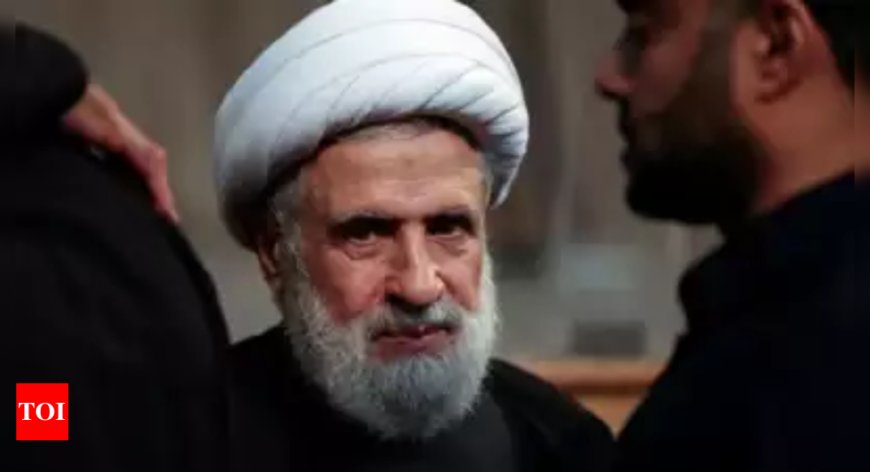Iran's Khamenei names Hezbollah leader as Lebanon 'representative'
Iran's supreme leader, Ayatollah Ali Khamenei, has appointed Hezbollah leader Naim Qassem as his representative in Lebanon, responsible for religious and non-litigious affairs. Qassem succeeds Hassan Nasrallah, who was killed in an Israeli airstrike. Hezbollah, part of Iran's "axis of resistance," delayed public commemorations for Nasrallah and Hashem Safieddine until a February 23 funeral due to security concerns amid recent Israel-Lebanon tensions.

Iran's Khamenei Names Hezbollah Leader as Lebanon 'Representative'
In a significant political move, Iranian Supreme Leader Ayatollah Ali Khamenei has officially designated the leader of Hezbollah, Hassan Nasrallah, as Lebanon's representative. This announcement comes amidst rising tensions in the Middle East and underscores Iran's influence in Lebanese politics. News by dharmyuddh.com
Understanding the Implications of Khamenei's Announcement
The appointment of Nasrallah as Lebanon's representative reinforces Iran's strategic alliance with Hezbollah, a powerful Lebanese militia and political party known for its strong anti-Israel stance. This decision not only solidifies Hezbollah's role within Lebanon but also reflects Khamenei's intent to maintain and expand Iran's influence in the region. Observers believe that this move could escalate tensions between Israel and Lebanon, leading to potential conflicts.
The Historical Context of Iran-Hezbollah Relations
Since its inception in the early 1980s, Hezbollah has been closely allied with Iran, receiving military, financial, and ideological support. This relationship has transformed Hezbollah into a formidable force in Lebanon and a key player in regional power dynamics. Khamenei's recognition of Nasrallah as a representative exemplifies the deep-rooted ties that continue to shape Lebanon’s political landscape. News by dharmyuddh.com
Hezbollah's Response to Khamenei's Recognition
Hezbollah has publicly welcomed Khamenei's announcement, viewing it as a validation of its role within Lebanon and the broader Arab world. The organization has consistently positioned itself as a defender of Lebanese sovereignty against foreign interference, particularly from Israel and the United States. With Khamenei's backing, Hezbollah may further cement its status as a leading force in Lebanese and regional politics.
Potential Repercussions on Regional Stability
This development is likely to draw mixed reactions from various stakeholders in the region. Supporters view it as a strengthening of resistance against Israeli aggression, while critics warn of increased sectarian tensions and instability. The move could provoke a tighter security response from Israel, further complicating the already fragile situation in Lebanon and its borders.
Conclusion: The Future of Hezbollah in Lebanese Politics
Khamenei’s designation of Nasrallah as Lebanon's representative marks a pivotal moment in Middle Eastern geopolitics. As Hezbollah continues to navigate the complexities of its dual role as a political entity and military force, its alliance with Iran remains crucial. The future trajectory of Lebanon's stability is closely tied to these developments. News by dharmyuddh.com Keywords: Iran Khamenei Hezbollah leader, Hezbollah Lebanon representative, Nasrallah appointment, Iran influence Lebanon, Hezbollah political role, Middle East tensions, Lebanese politics, Iranian support for Hezbollah, regional stability concerns.







